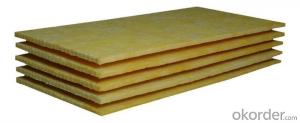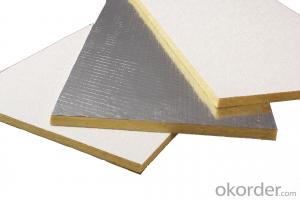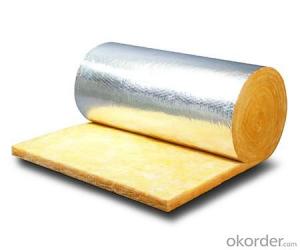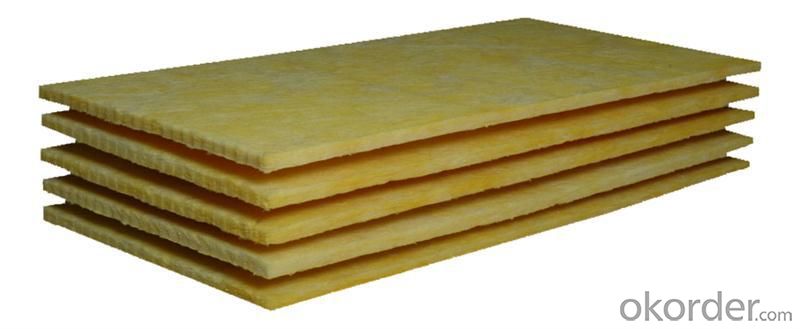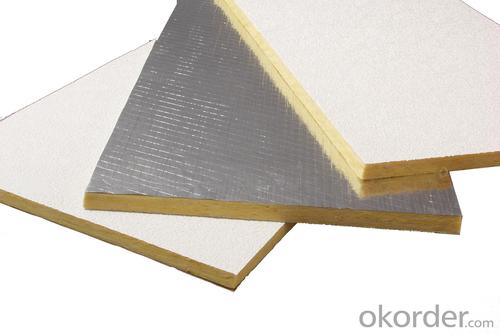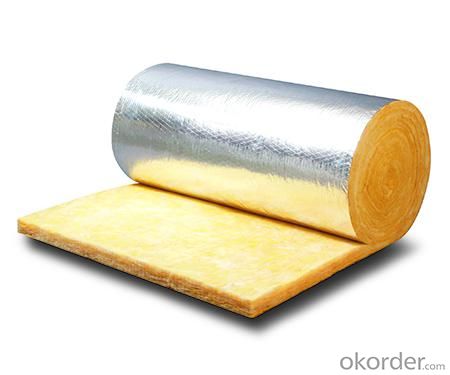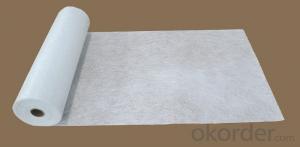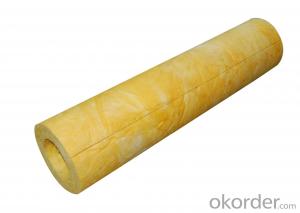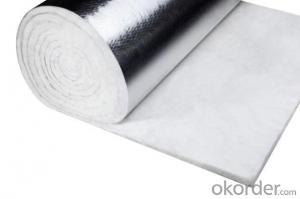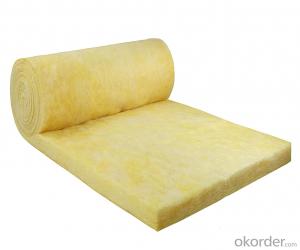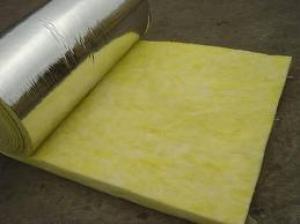Fiberglass Mat Tissue Glass Wool Insulation Batt Materials
- Loading Port:
- Tianjin
- Payment Terms:
- TT OR LC
- Min Order Qty:
- 5000 m²
- Supply Capability:
- 20000 m²/month
OKorder Service Pledge
OKorder Financial Service
You Might Also Like
1.Description of Glass Wool Blanket:
Glass wool, which belongs to glass fiber , is a kind of man-made inorganic fiber. It is made from fibrosis glass melt in wool shape, which belongs to inorganic fiber and fiber in its chemical ingredient. Its merit is better in shape, low density and volume, low in thermal conduction, better heat preservation and thermal insulation, fine sound absorption, corrosion-resistant and stable chemical property. Glass wool blanket, glass wool board, glass wool pipe, which made from glass wool, largely use in construction, chemical, electronic, electricity, metallurgy, energy industry and community with good performance in heat preservation, heat insulation, sound absorption.
2.Main features of Glass Wool Blanket:
a) : fire-resistance
It belongs to upmost fire resistance grade, Class A. It totally meet fire proofing requirement of national standard. It can guarantee the safety of building.
b): heat perversion property
Glass fiber, whose even fiber distribution and reedy fiber lead to lower coefficient of heat conductivity, can ensure its excellent heat-insulating property and long-term heat-preservation.
c): Environmental protection property
Glass wool, which is made from achromatism plate glass and quartz sand, is inorganic heat preservation material. It is a kind of green building material. What’s more, the scrap can be recycled and be reused. It can meet requirement of environmental protection.
3.Glass Wool Blanket Images:
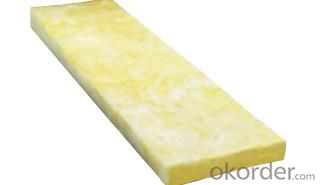
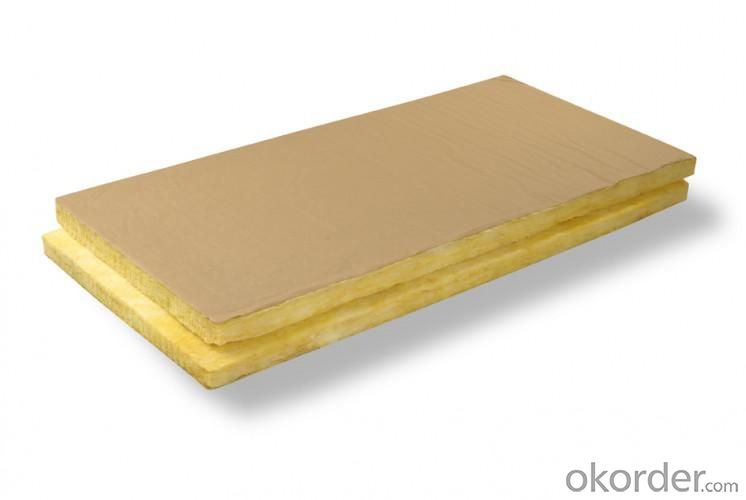
4. Glass Wool Insulation Blanket Technical Parameters:
Property | High/low temperature resistance, oil and fuel resistance, weathering resistance, O zone resistance etc. |
Shape | According to your requirement. |
Color | Any color is available ,according to your requirements. |
Material | NBR, CR, SBR, EPDM, IIR, NR, EP, Silicone, VITON etc. |
Hardness | 30-90ShoreA |
Delivery | In 10 days |
Packing | Plastic bag & carton box or according to your requirements. |
Application | Electronic field, industrial machine & equipment, house-hold appliance, telecommunication, automobile, medical equipment industry etc. |
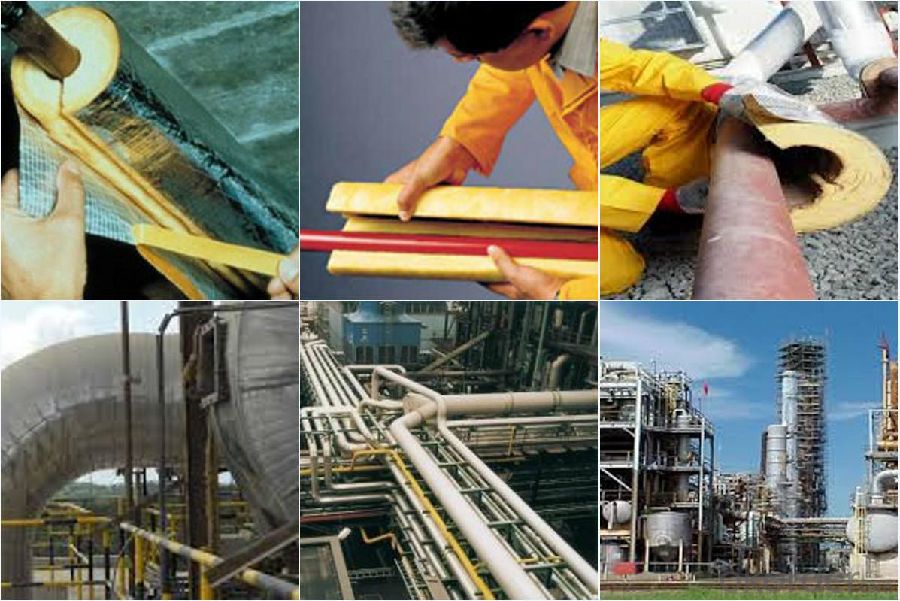
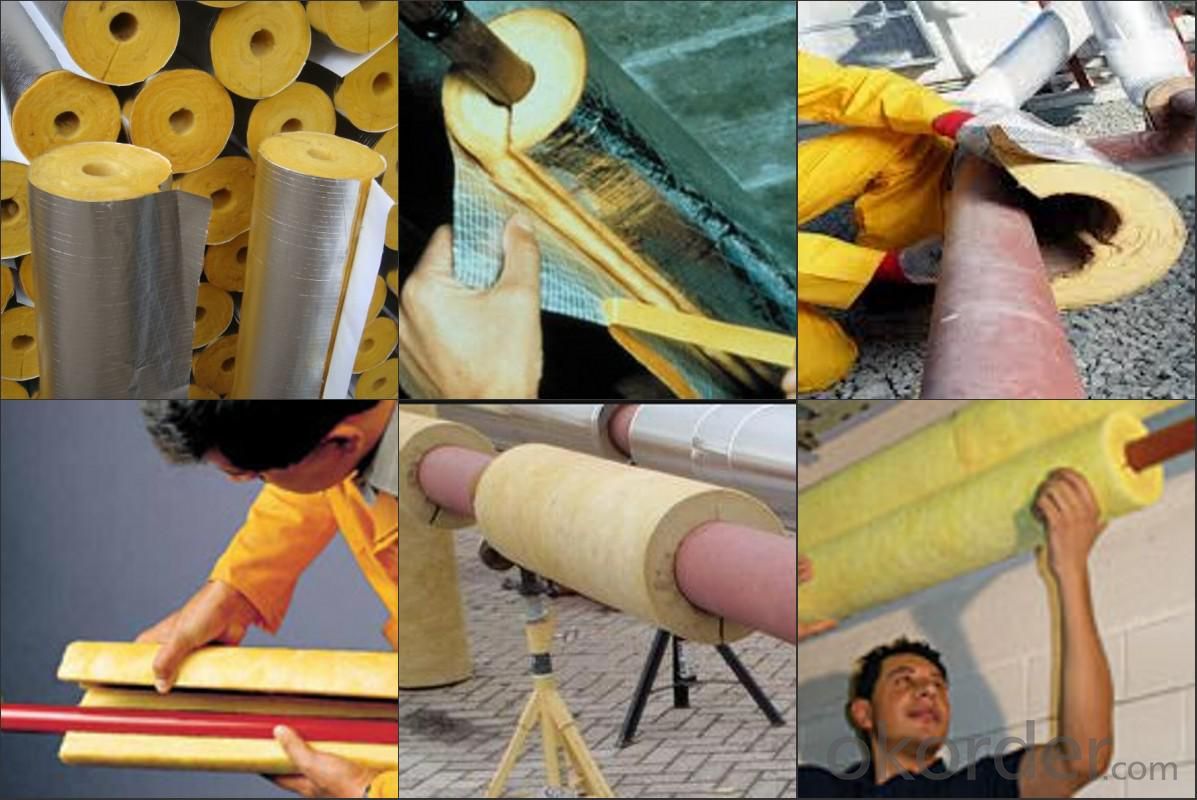
5.FAQ
We have organized several common questions for our clients,may help you sincerely:
①How about your company?
A world class manufacturer & supplier of Glass Wool Blanket is one of the large scale professional investment casting production bases in China,consisting of both casting foundry forging and machining factory. Annually more than 8000 tons Precision casting and forging parts are exported to markets in Europe,America and Japan. OEM casting and forging service available according to customer’s requirement.
②How to guarantee the quality of the products?
We have established the international advanced quality management system every link from raw material to final product we have strict quality test; We resolutely put an end to unqualified products flowing into the market. At the same time, we will provide necessary follow-up service assurance.
- Q: How does fiberglass mat tissue perform in terms of UV resistance?
- Fiberglass mat tissue generally performs well in terms of UV resistance. It is designed to withstand prolonged exposure to sunlight without significant degradation or discoloration. However, the specific UV resistance of fiberglass mat tissue can vary depending on the quality and manufacturing process of the material.
- Q: What is the impact resistance of fiberglass mat tissue?
- The impact resistance of fiberglass mat tissue is generally high due to the reinforcing properties of the fiberglass strands, which help to absorb and distribute impact forces.
- Q: What is the moisture resistance of fiberglass mat tissue?
- The moisture resistance of fiberglass mat tissue is high.
- Q: Is fiberglass mat tissue suitable for electrical insulation applications?
- Fiberglass mat tissue proves to be a fitting choice for electrical insulation purposes. Comprised of glass fibers intricately fused with resin, it yields a robust and long-lasting substance. Its remarkable electrical insulation traits, including a high dielectric strength and low electrical conductivity, render it perfect for situations necessitating electrical insulation, like those found in transformers, motors, and electrical switchgear. Furthermore, the added resistance to moisture, chemicals, and heat amplifies its aptness for electrical insulation applications.
- Q: How is fiberglass mat tissue used in the production of shower enclosures?
- The production of shower enclosures commonly utilizes fiberglass mat tissue due to its exceptional properties and advantages. This thin and flexible material consists of fine glass fibers that are randomly distributed and bonded together with a resin binder. To strengthen and enhance the shower enclosure, fiberglass mat tissue is primarily used as a reinforcement material. It is applied to the enclosure's surface to improve its strength, durability, and resistance to cracking or breaking. Initially, the fiberglass mat tissue is cut and sized according to the specific dimensions of the shower enclosure. It is then carefully placed or applied onto the enclosure's surface, typically through a process known as hand lay-up or spray-up. The mat tissue is strategically positioned to cover critical areas requiring reinforcement, such as corners, edges, and joints. Once the mat tissue is in position, a resin, usually polyester or epoxy, is applied over it. The resin penetrates the fiberglass mat tissue and bonds with the fibers, creating a solid and sturdy composite structure. This combination of resin and fiberglass provides additional strength and stability to the shower enclosure, making it more resistant to impact, stress, and water or humidity. Additionally, fiberglass mat tissue also contributes to the overall appearance of the shower enclosure. It helps achieve a smooth and uniform surface finish, eliminating imperfections and creating an aesthetically pleasing look. The mat tissue can be easily molded or shaped to match different designs and styles, enabling manufacturers to produce shower enclosures of various shapes, sizes, and patterns. In conclusion, fiberglass mat tissue plays a crucial role in the production of shower enclosures by offering reinforcement, strength, durability, and aesthetic benefits. This versatile material enhances the overall performance and visual appeal of the enclosures, ensuring they can withstand daily use and maintain their quality over time.
- Q: Can fiberglass mat tissue be used for automotive repairs?
- Automotive repairs can indeed utilize fiberglass mat tissue. This versatile material finds its application across various industries, including the automotive sector. It serves to reinforce and mend auto body panels, while also addressing cracks, holes, and other damages that may afflict the vehicle's body. Comprised of resilient fibers held together by a resin, fiberglass mat tissue boasts exceptional strength and flexibility. As a result, it proves to be an ideal choice for automotive repairs. Its malleability allows it to conform to different contours and shapes of car parts, ensuring a seamless and precise restoration. Moreover, fiberglass mat tissue possesses the desirable qualities of being lightweight and durable, both of which are vital attributes for automotive repairs. It offers unparalleled resistance against corrosion, weathering, and other external elements, thereby guaranteeing the longevity of the repair. Additionally, it provides reliable impact resistance, effectively safeguarding the repaired area from further harm. Furthermore, fiberglass mat tissue harmonizes effortlessly with a wide range of automotive coatings, including primers, paints, and clear coats. This compatibility ensures a flawlessly smooth and professional finish once the repair work is completed. To summarize, fiberglass mat tissue stands as an appropriate choice for automotive repairs due to its formidable strength, flexibility, durability, and compatibility with automotive coatings. It is commonly employed in the industry to reinforce and mend auto body panels, address damages, and achieve an impeccable finish.
- Q: Is fiberglass mat tissue suitable for agricultural applications?
- Yes, fiberglass mat tissue can be suitable for agricultural applications. It is commonly used in the agricultural industry for various purposes such as reinforcement for greenhouse structures, insulation for livestock housing, and even as a material for composting systems. Its durability, strength, and resistance to weathering make it a viable option for agricultural use.
- Q: Can fiberglass mat tissue be used for insulating ductwork?
- Yes, fiberglass mat tissue can be used for insulating ductwork.
- Q: Is fiberglass mat tissue suitable for insulation in HVAC ducts?
- Yes, fiberglass mat tissue is suitable for insulation in HVAC ducts. Fiberglass is a commonly used material for insulation due to its excellent thermal and acoustic properties. It is capable of withstanding high temperatures and is resistant to moisture, making it ideal for ductwork applications. Fiberglass mat tissue provides effective insulation by reducing heat transfer and preventing condensation buildup within the ducts. Additionally, it is lightweight, easy to install, and has a long lifespan, making it a cost-effective choice for HVAC insulation. Overall, fiberglass mat tissue is a suitable and reliable option for insulation in HVAC ducts.
- Q: How does fiberglass mat tissue compare to spray foam insulation?
- Fiberglass mat tissue and spray foam insulation are two different types of insulation with their own unique characteristics and benefits. Fiberglass mat tissue is a lightweight and flexible material made from spun glass fibers that are arranged into a mat. It is commonly used in the construction industry for thermal and acoustic insulation purposes. Fiberglass mat tissue is relatively easy to install and provides good thermal resistance, helping to regulate temperature and reduce energy loss. However, it may not be as effective in sealing air leaks or filling gaps compared to spray foam insulation. On the other hand, spray foam insulation is a liquid mixture that expands into a foam after being sprayed. It fills gaps and crevices, creating an airtight seal that helps to prevent air leakage and reduce energy consumption. Spray foam insulation can also provide a higher R-value (a measure of thermal resistance) compared to fiberglass mat tissue, making it more efficient in terms of insulation performance. However, the installation process for spray foam insulation can be more complex and may require professional assistance. In summary, fiberglass mat tissue is a cost-effective and easy-to-install insulation option that offers good thermal resistance but may be less effective in sealing air leaks. Spray foam insulation, on the other hand, provides superior insulation performance and air sealing capabilities, but may require professional installation and can be more expensive. Ultimately, the choice between the two will depend on factors such as budget, specific insulation needs, and the desired level of air sealing.
Send your message to us
Fiberglass Mat Tissue Glass Wool Insulation Batt Materials
- Loading Port:
- Tianjin
- Payment Terms:
- TT OR LC
- Min Order Qty:
- 5000 m²
- Supply Capability:
- 20000 m²/month
OKorder Service Pledge
OKorder Financial Service
Similar products
Hot products
Hot Searches
Related keywords
